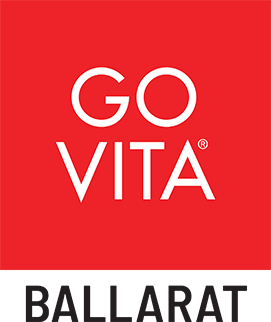In the world of health supplements, NAD+, NAC, and NMN have gained significant attention for their potential to improve cellular health and overall well-being. While they share some similarities, each compound plays a unique role in the body, targeting different aspects of health. Understanding what these supplements do and who might benefit from them is essential for making an informed choice. Let’s break down the key differences between NAD+, NAC, and NMN.
What is NAD+?
NAD+ (Nicotinamide Adenine Dinucleotide) is a vital coenzyme found in every cell of your body. It plays a crucial role in energy production by facilitating the function of mitochondria, the powerhouses of cells. NAD+ is involved in many essential biological processes, including DNA repair, cell signaling, and regulating metabolic pathways. As we age, NAD+ levels naturally decline, which can contribute to cellular damage, decreased energy production, and an increased risk of chronic conditions like heart disease and diabetes.
By boosting NAD+ levels, we may support healthy aging, improve cellular function, and promote overall vitality. NAD+ supplementation is typically used by individuals looking to support their energy levels, improve recovery, and potentially slow the effects of aging. Some people take NAD+ to optimize their physical performance or as part of an anti-aging regimen.

What is NAC?
NAC (N-Acetyl Cysteine) is a supplement derived from the amino acid cysteine. It is most commonly known for its powerful antioxidant properties. NAC works by boosting levels of glutathione, one of the body’s most important antioxidants, which helps protect cells from oxidative stress and damage caused by free radicals. In addition to its antioxidant effects, NAC plays a role in detoxification, liver health, and respiratory function.
NAC is often used for its ability to support the immune system and detoxify the body. It is particularly beneficial for those with liver conditions, chronic respiratory diseases, or those seeking to reduce inflammation. Additionally, NAC has been studied for its potential in supporting mental health, particularly for conditions like depression and anxiety, due to its role in regulating glutamate levels in the brain.
What is NMN?
NMN (Nicotinamide Mononucleotide) is a precursor to NAD+. In other words, the body converts NMN into NAD+ to boost cellular levels of the coenzyme. Research suggests that NMN supplementation may offer many of the same benefits as NAD+ supplementation, including improving energy metabolism, supporting DNA repair, and promoting healthy aging. Some studies indicate that NMN could enhance physical performance, reduce inflammation, and increase insulin sensitivity.
Unlike directly supplementing with NAD+, NMN has a unique advantage in that it can be absorbed by cells more efficiently and potentially lead to a greater increase in NAD+ levels. People who are particularly interested in anti-aging benefits or boosting energy levels might choose NMN over NAD+, as it provides a more targeted way to support NAD+ production in the body.
Which Supplement is Right for You?
Each of these supplements offers unique benefits, so choosing the right one depends on your specific health goals.
NAD+ supplementation is ideal for those looking to enhance cellular energy production, slow the aging process, or improve overall vitality. It’s perfect for people focused on anti-aging, physical performance, and general health optimization.
NAC is best for individuals who want to support liver health, detoxification, and immune function. It’s also a great choice for those with chronic respiratory conditions or mental health concerns.
NMN is a great option for those interested in boosting NAD+ levels naturally and may be more effective than NAD+ supplementation itself. If you want to promote healthy aging, support metabolism, and improve energy, NMN might be the best choice
While NAD+, NAC, and NMN all support cellular health, they target different biological processes. Before choosing which supplement to take, it’s important to consider your personal health needs and consult with a healthcare provider to determine the best approach for your individual circumstances.







 Boody - Men's Original Boxers Black S
Boody - Men's Original Boxers Black S